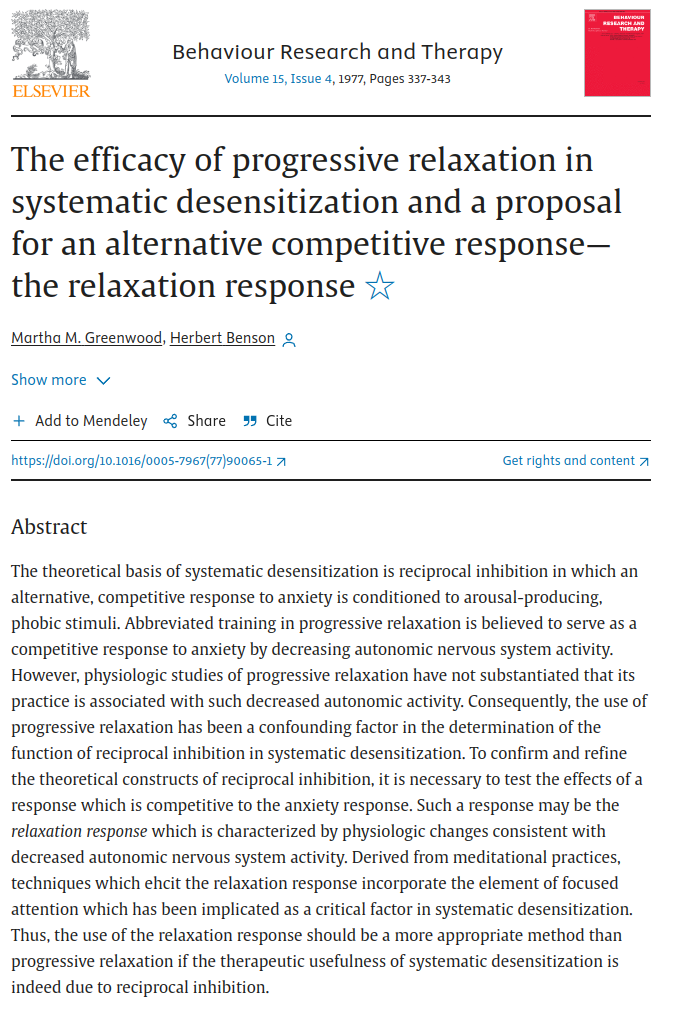The theoretical basis of systematic desensitization is reciprocal inhibition in which an alternative, competitive response to anxiety is conditioned to arousal-producing, phobic stimuli. Abbreviated training in progressive relaxation is believed to serve as a competitive response to anxiety by decreasing autonomic nervous system activity. However, physiologic studies of progressive relaxation have not substantiated that its practice is associated with such decreased autonomic activity. Consequently, the use of progressive relaxation has been a confounding factor in the determination of the function of reciprocal inhibition in systematic desensitization. To confirm and refine the theoretical constructs of reciprocal inhibition, it is necessary to test the effects of a response which is competitive to the anxiety response. Such a response may be the relaxation response which is characterized by physiologic changes consistent with decreased autonomic nervous system activity. Derived from meditational practices, techniques which elicit the relaxation response incorporate the element of focused attention which has been implicated as a critical factor in systematic desensitization. Thus, the use of the relaxation response should be a more appropriate method than progressive relaxation if the therapeutic usefulness of systematic desensitization is indeed due to reciprocal inhibition.
The efficacy of progressive relaxation in systematic desensitization and a proposal for an alternative competitive response—the relaxation response
Publication
Behavior Research and Therapy
15(4),pp. 337-343
Abstract
Web and Email Links
Related Listings
Journal
Journal of Human Stress
Human pupillary dilatation after topical instillation of phenylephrine was assessed in a prospective, randomized, controlled experiment to measure alterations in α-end-organ responsivity after regular elicitation of the relaxation response. Baseline pupillometric measurements were taken in both experimental and control subjects. The experimental subjects then practiced daily a technique that elicited the relaxation response while the control subjects sat quietly for comparable periods […]
Journal
NeuroReport
Previous research indicates that long-term meditation practice is associated with altered resting electroencephalogram patterns, suggestive of long lasting changes in brain activity. We hypothesized that meditation practice might also be associated with changes in the brain's physical structure. Magnetic resonance imaging was used to assess cortical thickness in 20 participants with extensive Insight meditation experience, which involves focused attention to internal experiences. Brai […]
Journal
Calmer
In light of World Sleep Day this month, this week’s guest post features Valerie Teh, Calmer’s Client Manager and Self-Care Practitioner, who shares her expertise on how to explore and embrace intelligent rest to enhance quality sleep and nurture your overall wellbeing.

